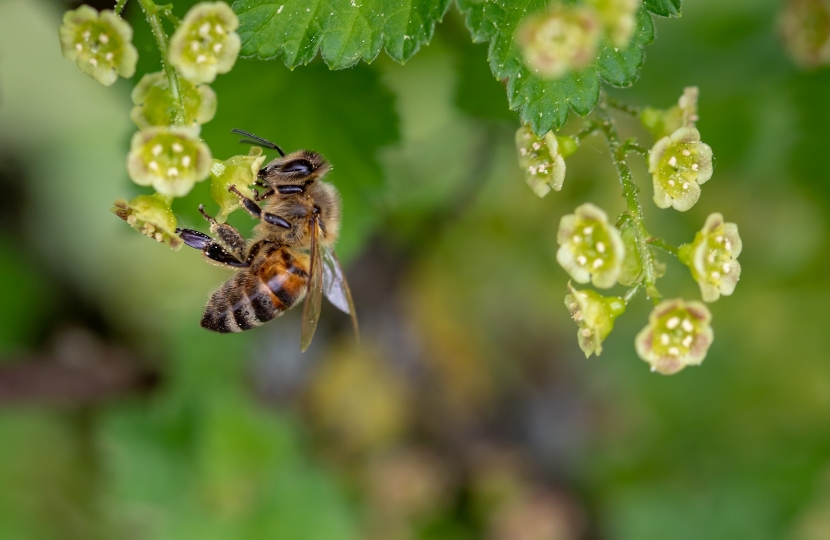
November 2018
I entirely agree with you that bees and other pollinators play an essential role in our food production and are vital to the survival of our wild plants. There are around 1,500 species of insect pollinator in the UK, and I appreciate work over the last few years to protect them. These efforts have been brought together in the National Pollinator Strategy.
This is a ten-year plan to improve understanding and awareness of the status and role of pollinators, create and enhance habitats and safeguard bee health. It also sets out new work to be done immediately, building on longer-term initiatives. These include conserving and creating good quality wildflower meadows and minimising risks from pesticides. The Government is working with a range of public, private and charitable bodies to create been and insect friendly habits.
Since the Strategy was launched there has been encouraging progress on its aims to make farms, towns, cities and the countryside better places for our bees and other pollinators. Ministers continue to work with partners such as Friends of the Earth, British Beekeepers’ Association and Kew to deliver it.
I especially welcome the launch of a new £60,000 fund to develop pollinator habitat mapping, working in partnership with other organisations to identify where new habitats will benefit pollinators most. This will help boost the number of pollinator-friendly landscapes and protect the health of our bees, wasps, beetles butterflies, moth and hoverflies.
Due to this fun, the Protection of Pollinators Bill that you have mentioned was withdrawn as its objectives have been largely been met.
